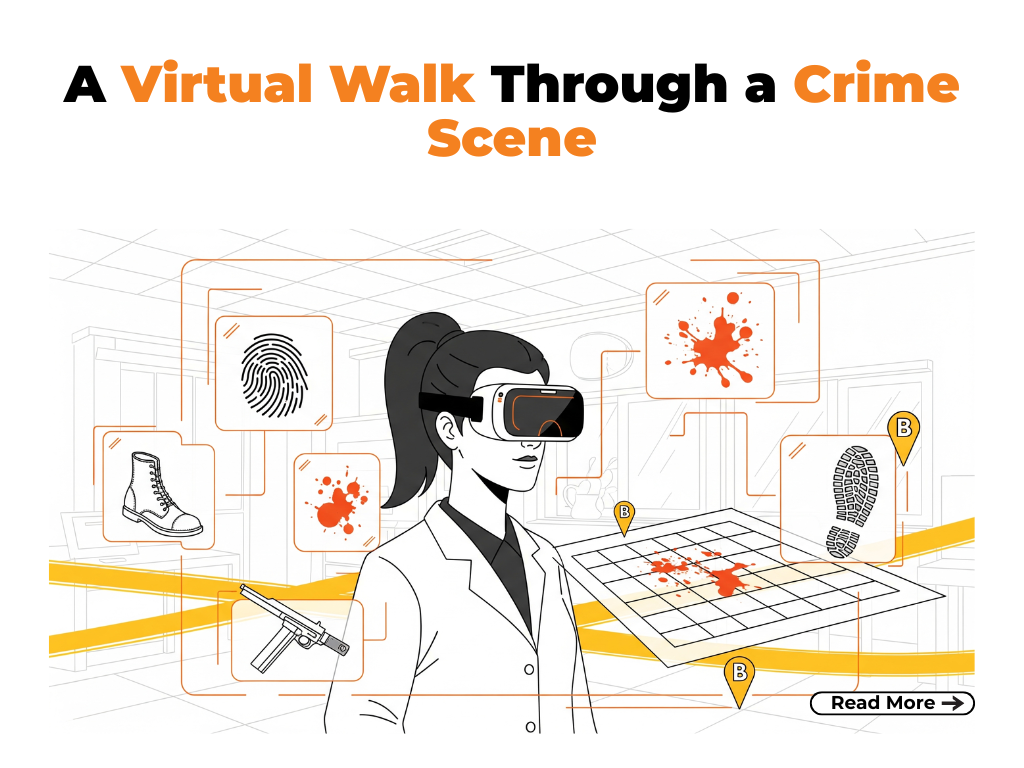- Why Choosing the Right Course Matters?
- What Is B.Tech. Biomedical Engineering [Lateral Entry]?
- Who Should Consider B.Tech. Biomedical Engineering [Lateral Entry]?
- Why B.Tech. Biomedical Engineering [Lateral Entry] Is a Game-Changer?
- Top Skills You’ll Develop in B.Tech. Biomedical Engineering [Lateral Entry]
- Biomedical Engineering Scope in Future: What’s Next?
- Internship & Project Opportunities
- Alumni Success Stories
- How to Maximize Your Career in Biomedical Engineering?
- Global Trends and Emerging Technologies in Biomedical Engineering
- Conclusion
- Frequently Asked Questions
Why Choosing the Right Course Matters?
Selecting the right academic path is one of the most crucial decisions that shape your career and future. For students with a background in medical or technical fields, choosing B.Tech. Biomedical Engineering [Lateral Entry] can open doors to a dynamic and impactful profession that bridges healthcare and technology. This field combines innovation, problem-solving, and compassion—offering opportunities to design devices, improve medical systems, and enhance patient care.
If you have completed a diploma and wish to advance your career in this exciting domain, the lateral entry B.Tech. Biomedical programmes could be the perfect next step. It allows you to enter directly into the second year of the programme, saving both time and cost while deepening your technical expertise.
At Lovely Professional University (LPU), the programme is structured to help students gain both theoretical knowledge and hands-on experience. Understanding why studying biomedical engineering is essential—it’s not just about machines and devices, but about improving human lives through technology-driven healthcare solutions.
| Did you know?
Diploma holders can directly join the second year of B.Tech. Biomedical Engineering [Lateral Entry] at LPU, saving a year while gaining advanced technical knowledge. |
What Is B.Tech. Biomedical Engineering [Lateral Entry]?
The B.Tech. Biomedical Engineering [Lateral Entry] programme is designed for students who have already completed a diploma in Biomedical or related engineering fields and wish to continue their studies at an advanced level. Through this pathway, students can directly enter the second year of the undergraduate programme, allowing them to save a year while gaining specialized knowledge and skills in the field.
At its core, Biomedical Engineering is an interdisciplinary branch that blends principles of engineering, biology, and medicine to create innovative healthcare technologies. Students in this programme learn how to design and develop medical equipment, prosthetic devices, imaging systems, and healthcare software that improve diagnosis, treatment, and patient care.
Lovely Professional University’s LPU B.Tech. Biomedical [Lateral Entry] programme stands out for its strong focus on research, innovation, and industry-oriented learning. The curriculum is regularly updated to reflect emerging trends in healthcare technology, ensuring that students are equipped with the competencies required to excel in the biomedical industry.
In essence, the biomedical engineering programme at LPU offers an ideal combination of technical education and real-world exposure, helping students become professionals who can make a meaningful impact in modern healthcare.
| Did you know?
Students from the programme have bagged lucrative offers, with some securing packages as high as Rs. 11 LPA, reflecting strong industry demand. |
Who Should Consider B.Tech. Biomedical Engineering [Lateral Entry]?
The B.Tech. Biomedical Engineering [Lateral Entry] programme is ideal for students who already hold a diploma in Biomedical Engineering, Electronics, Electrical, Mechanical, or related technical fields and wish to advance their academic and professional journey. Understanding the eligibility B.Tech. Biomedical Engineering [Lateral Entry] is the first step—diploma holders who have completed a three-year programme from a recognized institution can apply for direct admission into the second year of the degree course at Lovely Professional University (LPU).
If you are passionate about technology, healthcare innovation, and improving human well-being, this programme could be your perfect fit. Students who enjoy subjects like biology, electronics, and design—along with a desire to work in hospitals, research labs, or medical equipment companies—should definitely consider this pathway.
The career fit Biomedical Engineering suits individuals who want to bridge the gap between medicine and engineering. Whether your goal is to design life-saving devices, conduct medical research, or support healthcare technology development, this field offers diverse opportunities.
In short, who should pursue Biomedical Engineering? Anyone who envisions a career where technology meets healthcare innovation and wishes to contribute to improving patient lives while building a strong technical foundation.
Why B.Tech. Biomedical Engineering [Lateral Entry] Is a Game-Changer?
The B.Tech. Biomedical Engineering [Lateral Entry] programme is not just another engineering degree—it’s a transformative pathway that prepares students to make a real difference in healthcare and technology. One of the major benefits of Biomedical Engineering is its ability to merge innovation with compassion. Students learn how to design, develop, and manage technologies that directly improve patient care and medical outcomes.
The impact of B.Tech. Biomedical Engineering [Lateral Entry] extends far beyond laboratories and hospitals. Biomedical engineers are at the forefront of developing advanced diagnostic tools, prosthetic limbs, artificial organs, and health-monitoring systems. Their work contributes to life-saving innovations and a better quality of life for millions of people worldwide.
Pursuing this programme through the lateral entry route offers additional biomedical engineering career advantages—it allows diploma holders to fast-track their degree while gaining exposure to cutting-edge research and modern medical technologies. Graduates of this programme are well-equipped to work in hospitals, medical device companies, research organizations, and healthcare startups.
In essence, this course empowers students to combine engineering excellence with humanitarian impact—making the B.Tech. Biomedical Engineering [Lateral Entry] programme a true game-changer for aspiring professionals in the healthcare technology sector.
| Did you know?
LPU students have been recognized globally, including Alvin Zannat, who won the Best Commendation Award at the International Global Conference Model United Nations India 2024. |
Top Skills You’ll Develop in B.Tech. Biomedical Engineering [Lateral Entry]
The B.Tech. Biomedical Engineering [Lateral Entry] programme at Lovely Professional University equips students with an impressive blend of technical expertise, analytical thinking, and practical experience. By joining this programme, you’ll gain essential biomedical engineering skills that make you career-ready for the fast-growing healthcare technology sector.
Here’s what you’ll learn and develop during your academic journey:
1. Core Technical Skills in Biomedical Engineering
- Biomedical Instrumentation: Learn how to design, operate, and maintain medical devices used in hospitals and diagnostic centers.
- Medical Imaging Techniques: Gain knowledge of technologies like X-rays, MRI, CT scans, and ultrasound systems.
- Biomaterials and Biomechanics: Understand materials compatible with human tissues and study mechanical principles applied to biological systems.
- Signal and Image Processing: Develop analytical skills to interpret medical data and images for accurate diagnosis.
- Embedded Systems and Sensors: Learn how to integrate electronics and sensors into wearable or implantable medical devices.
2. Analytical and Problem-Solving Abilities
- Apply engineering principles to solve real-world healthcare challenges.
- Use data-driven approaches to enhance the performance and safety of medical equipment.
- Develop innovative solutions for patient monitoring, rehabilitation, and diagnostics.
3. Research and Innovation Skills
- Engage in projects and research supported by LPU’s advanced labs and innovation centers.
- Participate in interdisciplinary projects combining engineering, medicine, and computer science.
- Learn to document, test, and present research findings effectively.
4. Interpersonal and Professional Skills
- Improve communication and teamwork through collaborative projects.
- Learn professional ethics and regulatory standards in healthcare technology.
- Gain leadership qualities essential for working in hospitals, research organizations, and biomedical companies.
5. Practical Exposure and Industry Readiness
- Hands-on training with cutting-edge laboratory equipment and simulation software.
- Internship opportunities and workshops with healthcare and medical device industries.
- Exposure to industrial trends, helping you stay competitive in the evolving biomedical landscape.
In essence, the lateral entry B.Tech. skill development model at LPU ensures that students are not only academically strong but also practically trained to handle the complex demands of the biomedical engineering profession.
| Did you know?
LPU encourages students to work on cutting-edge projects in medical imaging, wearable devices, and AI-based healthcare solutions, keeping them ahead in the field of biomedical engineering. |
Biomedical Engineering Scope in Future: What’s Next?
The future of Biomedical Engineering is bright, promising, and full of innovation. As healthcare continues to advance through technology, the demand for skilled biomedical engineers is growing rapidly across the world. Graduates of this field play a vital role in developing new medical devices, enhancing healthcare systems, and improving patient outcomes through engineering solutions.
With constant advancements such as artificial intelligence (AI), wearable medical devices, robotic surgeries, and telemedicine, the career scope B.Tech. Biomedical is expanding faster than ever. Professionals trained in this field are not limited to hospitals or laboratories—they are equally in demand in research organizations, medical device manufacturing companies, biotechnology firms, and healthcare startups.
Below are some of the top biomedical engineering opportunities for the future:
1. Medical Device Innovation
Design and develop advanced diagnostic and therapeutic equipment such as imaging systems, prosthetics, and artificial organs.
2. Healthcare Data and AI Integration
Work on AI-based health monitoring systems and big data analysis for disease prediction and treatment personalization.
3. Biomedical Research and Development
Collaborate with scientists and medical professionals to create next-generation medical technologies and solutions.
4. Clinical Engineering
Manage and maintain complex hospital equipment, ensuring accuracy and safety in patient care.
5. Biotechnology and Pharmaceutical Industries
Support the development of drug delivery systems, biosensors, and biocompatible materials used in modern healthcare.
6. Academic and Global Research Careers
Contribute to education and research in universities and global health organizations shaping the future of medicine and technology.
As healthcare systems worldwide continue to evolve, the future of Biomedical Engineering will be defined by innovation, interdisciplinary collaboration, and the growing need for technology-driven healthcare solutions. For students looking for a field that combines engineering excellence with humanitarian purpose, Biomedical Engineering promises a rewarding and future-proof career path.
Internship & Project Opportunities
Practical exposure is one of the key strengths of the B.Tech. Biomedical Engineering [Lateral Entry] programme at Lovely Professional University. The university believes that true learning happens when students apply classroom knowledge to real-world scenarios. That’s why the programme includes various biomedical engineering internships and project-based learning modules designed to enhance industry readiness and technical expertise.
1. Industry-Integrated Internships
Students get opportunities to work with hospitals, healthcare companies, and biomedical equipment manufacturers. These biomedical engineering internships help them understand how theoretical concepts are implemented in professional settings. Through such experiences, learners gain practical insight into medical device design, testing, and maintenance—essential skills for career growth.
2. Research and Development Projects
The LPU B.Tech. Biomedical projects encourage students to explore innovative solutions to healthcare challenges. From developing wearable health-monitoring systems to working on AI-driven diagnostics, students collaborate with faculty mentors and industry experts to create impactful projects. These research initiatives often get showcased at national and international forums, enhancing students’ academic and professional profiles.
3. Hands-on Experience and Laboratory Learning
The programme emphasizes hands-on experience Biomedical Engineering, ensuring students are proficient with cutting-edge tools and technologies. LPU’s advanced laboratories are equipped with biomedical instruments, simulation software, and analytical devices that allow students to experiment, design prototypes, and test real-world medical solutions.
4. Industry Collaborations and Live Projects
Through collaborations with reputed healthcare institutions and technology firms, students can participate in live projects and workshops. These experiences bridge the gap between academia and industry, helping learners understand current trends and expectations in biomedical engineering.
In essence, LPU’s focus on internships, research, and experiential learning ensures that every student graduates with strong technical know-how, industry exposure, and confidence to contribute effectively to the ever-evolving biomedical sector.
Alumni Success Stories
Lovely Professional University takes pride in the achievements of its B.Tech. Biomedical Engineering [Lateral Entry] alumni, who have gone on to build remarkable careers and make significant contributions to the biomedical and healthcare sectors. The programme’s strong focus on technical skills, industry exposure, and research opportunities ensures that LPU graduates are well-prepared to excel globally.
Here are some inspiring examples of successful biomedical engineering careers from LPU:
- One of our students achieved a remarkable milestone by securing a package of Rs. 11 LPA at Whatfix, reflecting the strong placement support and industry relevance of LPU’s curriculum.
- Alvin Zannat, a B.Tech. Biomedical Engineering [Lateral Entry] student, was honored with the Best Commendation Award during the International Global Conference Model United Nations India 2024, organized by the Department of Youth Capital under the aegis of the Division of Youth Affairs, Student Welfare Wing, LPU, Punjab.
These achievements underscore how LPU biomedical graduates are not only academically accomplished but also ready to lead in global healthcare innovation, research, and professional excellence.
How to Maximize Your Career in Biomedical Engineering?
Pursuing a degree is just the beginning—how you shape your journey afterward determines your success. The B.Tech. Biomedical Engineering [Lateral Entry] programme equips you with the right foundation, but continuous learning and smart career planning are key to long-term growth. Whether you aspire to work in hospitals, research labs, or global healthcare companies, following the right steps can accelerate your career growth B.Tech. Biomedical [Lateral Entry] graduates dream of.
Here are some practical tips for Biomedical Engineering career development:
1. Stay Updated with Emerging Technologies
Biomedical engineering evolves rapidly with innovations like AI in diagnostics, wearable devices, and robotic surgery. Stay informed about the latest tools, trends, and technologies to remain competitive in the job market.
2. Build a Strong Technical Portfolio
Engage in research, internships, and projects that demonstrate your skills. A well-rounded portfolio showcasing your work in instrumentation, design, or healthcare software can set you apart from other candidates.
3. Network with Professionals and Experts
Attend seminars, workshops, and biomedical conferences to connect with industry leaders and peers. Networking helps you discover job opportunities, internships, and research collaborations.
4. Pursue Higher Studies or Certifications
Consider advanced degrees like M.Tech. or MBA in healthcare management, or certifications in medical device design and clinical engineering to expand your expertise and boost employability.
5. Seek Guidance and Mentorship
At Lovely Professional University, students benefit from dedicated career counselors and faculty mentors through the LPU Biomedical career guidance initiative. This helps learners make informed decisions about career paths, research options, and specialization areas.
6. Focus on Soft Skills
Strong communication, teamwork, and problem-solving skills are as important as technical knowledge. Employers seek professionals who can collaborate effectively and think critically.
By combining academic excellence with real-world exposure, networking, and continuous learning, you can unlock unlimited opportunities and achieve long-term career growth in Biomedical Engineering [Lateral Entry] . LPU’s comprehensive academic support and guidance ensure that every student is ready to lead and innovate in the global healthcare technology landscape.
Global Trends and Emerging Technologies in Biomedical Engineering
The field of biomedical engineering is evolving at an unprecedented pace, driven by rapid technological advancements and growing healthcare demands. Staying informed about global trends in biomedical engineering is essential for students and professionals aiming to make a meaningful impact in this sector.
Several emerging biomedical engineering technologies are shaping the future of healthcare:
1. Artificial Intelligence (AI) and Machine Learning
AI-powered diagnostic tools and predictive analytics are revolutionizing patient care. From early disease detection to personalized treatment plans, AI integration is a major trend in the global biomedical landscape.
2. Wearable and Remote Health Monitoring Devices
Smart wearable devices track vital signs and health metrics in real time, enabling proactive healthcare management. These innovations allow biomedical engineers to design devices that improve patient monitoring and convenience.
3. Robotics and Minimally Invasive Surgery
Robotic-assisted surgeries are becoming more precise and accessible. Biomedical engineers play a key role in designing and maintaining these systems, enhancing surgical outcomes worldwide.
4. 3D Printing and Bioprinting
3D printing technology enables the creation of customized implants, prosthetics, and even tissue engineering solutions. This is one of the most promising areas in innovations in B.Tech. Biomedical programmes.
5. Telemedicine and Digital Health Solutions
Telehealth platforms are transforming healthcare delivery, requiring biomedical engineers to integrate medical devices with secure digital interfaces for remote patient care.
6. Regenerative Medicine and Biomaterials
Advanced biomaterials and tissue engineering are opening new possibilities for organ repair and replacement, positioning biomedical engineers at the forefront of medical innovation.
By understanding these global trends in biomedical engineering and exploring emerging biomedical engineering technologies, students in LPU’s B.Tech. Biomedical programme are prepared to contribute to cutting-edge projects, research, and industry initiatives. This ensures they remain highly competitive in a rapidly evolving, technology-driven healthcare environment.
Conclusion
In today’s technology-driven healthcare environment, the B.Tech. Biomedical Engineering [Lateral Entry] programme at Lovely Professional University offers a unique blend of theoretical knowledge, practical skills, and industry exposure. From developing technical skills in biomedical engineering to engaging in hands-on projects and research, students are well-prepared to meet the demands of a rapidly evolving field.
The future prospects LPU biomedical programme graduates enjoy are vast and varied, ranging from roles in hospitals and medical device companies to research labs and global healthcare organizations. With access to cutting-edge laboratories, expert faculty, and comprehensive career guidance, LPU ensures that its students are equipped to innovate, lead, and make meaningful contributions to healthcare technology.
In the final thoughts of biomedical engineering, choosing the lateral entry route allows diploma holders to fast-track their degree while gaining specialized knowledge and exposure to emerging technologies. For students passionate about merging engineering with healthcare innovation, the B.Tech. Biomedical Engineering [Lateral Entry] programme at LPU provides the perfect platform to launch a rewarding, future-proof career.
Frequently Asked Questions
1. How can I apply for the Lateral Entry B.Tech. Biomedical programme at LPU? Interested candidates can apply online through the official LPU portal by filling the LPUNEST (LPU National Entrance and Scholarship Test) application form, selecting the lateral entry option, and completing the required formalities.
2. What are the career opportunities after completing B.Tech. Biomedical Engineering [Lateral Entry] from LPU?
Graduates can work in hospitals, medical device companies, research organizations, biotechnology firms, and healthcare startups. Roles include Biomedical Engineer, Clinical Engineer, R&D Specialist, and Medical Device Designer.
3. Does LPU provide internships and project opportunities for biomedical engineering students?
Yes, LPU offers extensive biomedical engineering internships and hands-on projects through its advanced labs and industry collaborations, giving students real-world experience and exposure to the latest technologies.
4. Does LPU provide internships and project opportunities for biomedical engineering students?
LPU combines state-of-the-art infrastructure, experienced faculty, research-driven curriculum, and comprehensive career guidance, ensuring students gain technical skills, industry exposure, and preparation for global biomedical engineering opportunities.
5. How does lateral entry benefit diploma holders in Biomedical Engineering?
The lateral entry route allows diploma holders to join directly in the second year of the degree, saving time while advancing their knowledge and skills. It accelerates career progression and provides exposure to cutting-edge technologies in the biomedical field.

![Is B.Tech. Biomedical Engineering [Lateral Entry] the Right Course for You Is B.Tech. Biomedical Engineering [Lateral Entry] the Right Course for You](https://www.lpu.in/blog/wp-content/uploads/2025/11/Is-B.Tech_.-Biomedical-Engineering-Lateral-Entry-the-Right-Course-for-You-696x522.png)


![Career Paths After B.Sc. Information Technology [Lateral Entry] Career Paths after B.Sc. Information Technology [Lateral Entry]](https://www.lpu.in/blog/wp-content/uploads/2026/01/Career-Paths-after-B.Sc_.-Information-Technology-Lateral-Entry-218x150.png)









